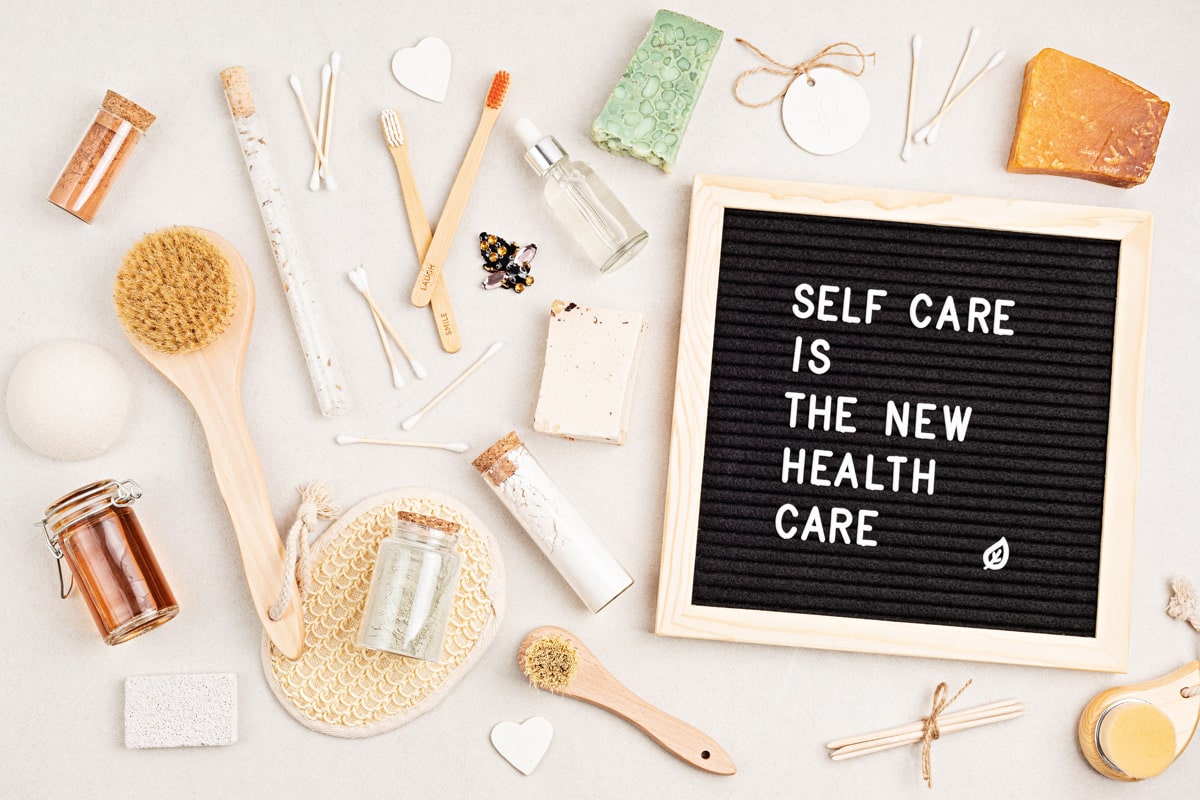Self-care is not being selfish. In fact, it’s the opposite. You need to take care of yourself—body, soul and mind, to be more productive and to be able share to yourself with others.
The principles of self-care include eating a balanced diet, exercising, taking some time for yourself, and other stress-reducing techniques. Doing so can help you develop a healthier body and a more resilient mind.
If you’re getting tired of spreading yourself too thin or simply can’t keep up with the demand of your multi-faceted life, check out these seven tips in taking better care of your body.
1. Stay Active
With so many of us inundated with work and home responsibilities, it’s very challenging to spare some time to perform regular physical exercises. With the slew of health benefits it provides, one has to try and develop exercise habits before it’s too late.
Spending 30 minutes to an hour of physical activities on a daily basis will help your body (and mind) in many ways. Regular exercise is said to help prevent heart diseases, reduce your blood sugar and insulin levels, and help you sleep better. A regular workout can also help you maintain health skin and bones.
However, if you do get injured after pushing yourself too much, too soon, consider recovery movements including this shoulder exercise.
2. Start Your Morning Right
There are various ways to approach this one but the best may be to have a quick morning meditation. Instead of rushing to your desk to finish that pending task, take time to meditate.
Take a few deep breaths and relax. Envision how your perfect day will look.
Starting the day with positive vibes will do wonders, as you’ll see. If you’ve ever felt like you woke up on the wrong side of the bed, stop and meditate. Doing this helps you clear your mind, allowing you to be more relaxed and less aggressive.
You can actually meditate any time of the day and not just before starting your morning. Doing it in the mile of the day, for instance, helps reduce stress build-up and keeps you grounded and settled.
3. Eat A Balanced Diet
Being mindful of what you put in your body isn’t only helpful in shedding off extra pounds.
Moreover, it serves as the main fuel where one gets their energy from. A balanced diet means generous portions of fruits and vegetables, and less of the harmful substances like processed foods. Reducing sugar and fat intake will help you maintain heart health and help prevent inflammation; allowing your body to stay in tiptop shape.
If you’re prone to bingeing on food if you’re stressed, combat this by taking time while you’re chewing your food down. Chew your food properly and appreciate the texture, flavor, and aroma. Besides allowing you to enjoy your food better, this practice also prevents you from eating too much.
4. Pay Attention To Your Gut Health
Although the issue is a subject of ongoing discussions in the scientific community, there may be some indications that your gut health is closely linked to your immune system, mood regulation, mental health, and overall well-being.
Being a potential driver for many of your essential health processes, it’s important to keep your gut healthy. This includes nurturing the production of good bacteria, in order to overpower the naturally existing bad bacteria. Doing this is as simple as tweaking your diet to accommodate gut-friendly foods such as beans, oats and legumes and other food rich in fiber.
Immune-boosting foods that include garlic and onion are also believed to help improve good bacteria. So are fermented foods such as yogurt and kimchi, as they’re packed with probiotics.
Douglas labs vitamins offer quality medication for your gut health, feel free to consult with your doctor and take some quality supplements,

5. Sleep Well
Sleep deprivation affects millions of people around the world. The reasons for sleep disturbances vary widely, with stress being one of the most common culprits. Thinking too much or over-worrying affects your circadian rhythm or biological clock, preventing you from getting a restful sleep.
Unfortunately, sleep problems are never helpful. For one thing, they can negatively affect your health, as it disrupts your body’s rest, recovery and regeneration processes, which could happen only in a deep slumber.
Practice sleep hygiene. Avoid eating late at night or drinking alcohol and caffeine-laden beverages before sleeping. Make sure your bed is comfortable and free from distractions such as electronics. Block out light in the bedroom. And, always remember to take some rest when you feel tired; even if you have other things to do.
As a bonus, you feel better, too, as your body releases feel-good hormones like endorphins. These hormones enhance your mood and make you feel less stressed.
6. Have Yourself Checked Regularly
The overused advice; prevention is better than cure, is always helpful when it comes to your health.
Don’t wait until you feel something’s off before seeing your doctor. By that time, something may already be acutely bad with your body, and it may take time before it can be addressed. Much like your vehicle’s preventive maintenance activity, visit your doctor at least once yearly for an overall health assessment.
The same thing goes for your dental health. Many people don’t think that poor dental health is closely linked to specific heart problems. If you have yet to see your dentist, always remember to brush your teeth and floss regularly.
7. Step Outside Or Take A Trip
Your mental health is just as important as physical health. Stepping outside for just a few minutes to catch a ray of sunshine can help your body get vitamin D. This compound can’t be produced by your body yet it’s necessary in boosting your immune system. Vitamin D is key to serotonin production, a hormone believed to help reduce depression and enhance mental alertness. Besides getting sunlight, you can also perform outdoor activities that help you get moving such as hiking and jogging.
If you want to spend longer periods for relaxation, a change in scenery can do you good. Drive out of town on a weekend to go camping or spend time on the beach. Spend the days either in solitude or with your significant other to rejuvenate.
Final Thoughts
Embarking on a self-care strategy is challenging because we live in a fast-paced world. With the demands from work, home and family, taking time for ourselves often gets on the back burner.
Some parents feel that self-care is inappropriate, being that they need to be on top of everything all the time.
These misconceptions should be taken off your mindset, as taking care of yourself is crucial in taking care of others.











